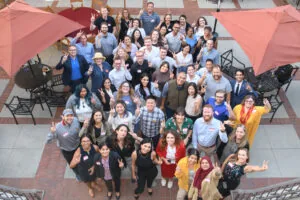Description
The dynamism of technology has enabled businesses to flourish, economies to grow and people to connect like never before. The role of the information environment is crucial, particularly in the military. Although the U.S. Department of Defense established Cyber Command and encouraged the armed forces to expand their Information Operations capabilities, military culture continues to look at the information domain as a sphere to influence only during hostilities. Approaching the information environment with the same discipline as the Navy or Air Force can benefit the Army and provide leaders with a competitive advantage, making it the United States’ seventh war fighting function.
In this seminar, Lt. Col. Gregory M. Tomlin discusses his article “The Case for an Information Warfighting Function,” using information capabilities to gain competitive edge, investing in information for strategic communications and international concerns, and how the Department of Defense’s strategy fits with other government sectors.
The discussion is kicked off by Jay Wang, associate professor of journalism at USC Annenberg School for Communication and Journalism and director of the USC Center on Public Diplomacy, and it is moderated by Marie Royce, CPD advisory board member and former assistant secretary of state, educational and cultural affairs.
Who Will Benefit
– Those seeking deeper insights into the role of information in defense
– Technology enthusiasts looking to understand how information can be beneficial to the military
– Policy makers looking to explore the future of defense in the information era
About Our Featured Faculty
Jay Wang is director of the USC Center on Public Diplomacy and an associate professor at the USC Annenberg School for Communication and Journalism. He previously worked for the international consulting firm McKinsey & Company, where he advised clients on matters of communication strategy and implementation across a variety of industries and sectors. Wang has written widely on the role of communication in the contemporary process of globalization. He is co-editor of the newly published book, Debating Public Diplomacy: Now and Next. He is the author of Shaping China’s Global Imagination: Nation Branding at the World Expo and several other books. He serves on the editorial board of the International Journal of Communication.
Marie Royce is a businesswoman, diplomat and educator. Royce is the CEO of Marie Royce LLC and serves on the Board of Cognito Health. She was a Fortune 500 Executive for 25+ years at The Procter & Gamble Company, Marriott International and Nokia/Alcatel-Lucent. Royce was unanimously confirmed by the United States Senate and sworn in as assistant secretary of state, educational and cultural affairs (ECA) on March 30, 2018 and served until January 20, 2021. In her role, she managed the Bureau’s highest budget: $760 million, 674 employees and a wide range of global programs to advance U.S. foreign policy objectives through educational, professional, cultural and sports exchanges that promote mutual understanding between the people of the United States and people of other nations. She oversaw the presidentially-appointed Fulbright Foreign Scholarship Board and the presidentially-appointed Cultural Property Advisory Committee (CPAC). The Academy of Women Entrepreneur’s (AWE) was created and launched in 80 countries by Royce. Assistant Secretary Royce held a Top Secret (TSI) clearance. Royce earned a BS in Business Administration (double major) at California State Polytechnic University, Pomona, and an MBA at Georgetown University in international business with honors, Beta Gamma Sigma.



